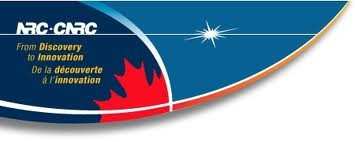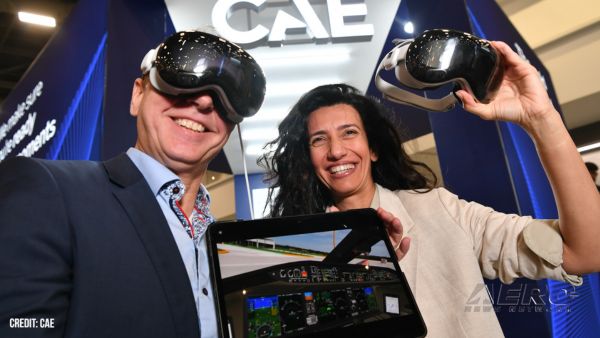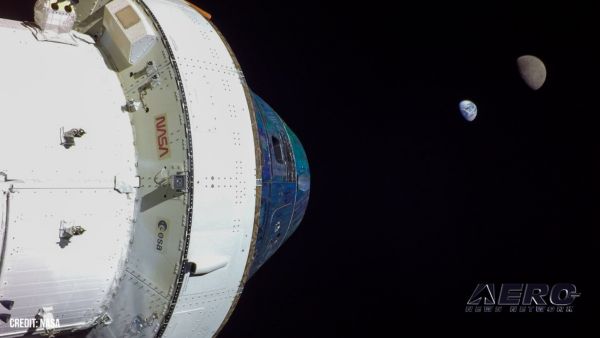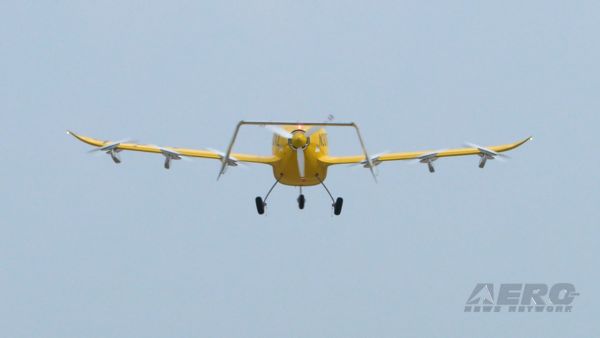Advancing Aerospace Research And Technology Development In Critical Areas
The National Research Council of Canada (NRC) has launched six new research focus areas to advance aerospace research and technology development (R&TD) in critical areas.

NRC has a long history of conducting research, performing technical services and developing technology solutions to support the Canadian aerospace industry. NRC’s national facilities provide cost-effective platforms to test, de-risk, validate and demonstrate new technologies while industry connections help ensure that Canadian companies remain competitive in a global market.
“NRC will focus on developing and advancing critical technologies that will increase the competitiveness of the Canadian aerospace industry, increase the content of Canadian products on current and future platforms, and secure Canada’s position as a leader in the global race to support the next generation of efficient, cost-effective and environmentally friendly aircraft,” said Jerzy Komorowski, general manager, NRC Aerospace. “These new research focus areas will also add new capabilities and complement NRC’s world renowned facilities and expertise to target the market challenges faced by the global aerospace sector.”
NRC’s six new research focus areas are:
Future Aircraft Development
NRC will enable Canada’s aerospace industry to transition from current aircraft to radically new aircraft platforms and reduce the cost of owning and operating aircraft. This will be accomplished by developing technologies that improve the sustainability of the aircraft lifecycle with a focus on reducing the costs of acquisition (material waste, labour intensity, cycle time), operation (maintenance, noise, CO2, NOX) and fuel (weight, drag, specific fuel consumption).
Human Factors Associated with Working and Travelling on Aircraft
NRC will focus on creating a more comfortable and safe journey for passengers and crew with improvements in the cabin environment that address many of the direct and indirect factors that impact comfort; provide a shorter, more economical trip with use of new technologies that optimize flight profiles; and ensure a healthier, safer cabin. NRC has also identified the need for a Canadian cabin demonstrator platform, capable of simulating a range of cabin sizes and layouts in a realistic cabin environment and allowing suppliers a platform to demonstrate emerging air cabin and environmental control technologies.
Civil Unmanned Aircraft Systems
NRC is concentrating its resources on three areas of unmanned aircraft systems (UAS) development that are currently impeding the civilian adoption of UAS in Canada and around the world: gaps in technology, gaps in regulation and a lack of opportunities for demonstration. To advance the industry in each of these areas, NRC will focus on the sense and avoid technology that is critical for widespread UAS adoption; work with regulators to jointly develop comprehensive and consistent regulations that augment the current Canadian ability to obtain approval for specific UAS operations; and facilitate collaboration between Canadian UAS developers, UAS service providers and higher level end-users through technology demonstration projects.
Air Defence Technologies
NRC is investing in R&TD that will meet Canada’s air defence needs with a focus on reducing the costs of owning and operating air defence fleets, and reducing the environmental impacts of air defence operations by reducing CO2 and fuel burn. NRC possesses the technology validation, airworthiness certification facilities and expertise required to support its industrial partners in bringing new military technologies to market, in addition to implementing the validated technologies in Canadian military fleets and transferring them to the civilian sector.
Aeronautical Product Development Technologies
NRC will work to smooth the path of new aeronautical products through certification and eventually to market by developing technologies that reduce time to certification and uncover adverse performance earlier in the development cycle, providing access to critical Canadian aerospace infrastructure, and adopting a collaborative approach to development and certification that strikes a balance between innovation and regulation.
Aircraft Icing
NRC will address critical icing challenges by providing aircraft and engine manufacturers, instrument suppliers and flight regulators with technologies, processes and facilities that will reduce the cost of product development and qualification of icing products. NRC will also work with innovative Canadian firms to support the demonstration and certification of new technologies that will detect, characterize and mitigate icing threats. This will lead to low-cost, certifiable new products, icing tools capable of simulating icing conditions, ice-detection sensors and wing and engine technologies, and technologies that optimize the remote detection and avoidance of atmospheric icing.
 Senator Pushes FAA to Accelerate Rocket Launch Licensing
Senator Pushes FAA to Accelerate Rocket Launch Licensing Classic Aero-TV: RJ Gritter - Part of Aviations Bright New Future
Classic Aero-TV: RJ Gritter - Part of Aviations Bright New Future Aero-FAQ: Dave Juwel's Aviation Marketing Stories -- ITBOA BNITBOB
Aero-FAQ: Dave Juwel's Aviation Marketing Stories -- ITBOA BNITBOB ANN's Daily Aero-Linx (10.27.24)
ANN's Daily Aero-Linx (10.27.24) ANN's Daily Aero-Term (10.27.24): Clearance Void If Not Off By (Time)
ANN's Daily Aero-Term (10.27.24): Clearance Void If Not Off By (Time)



